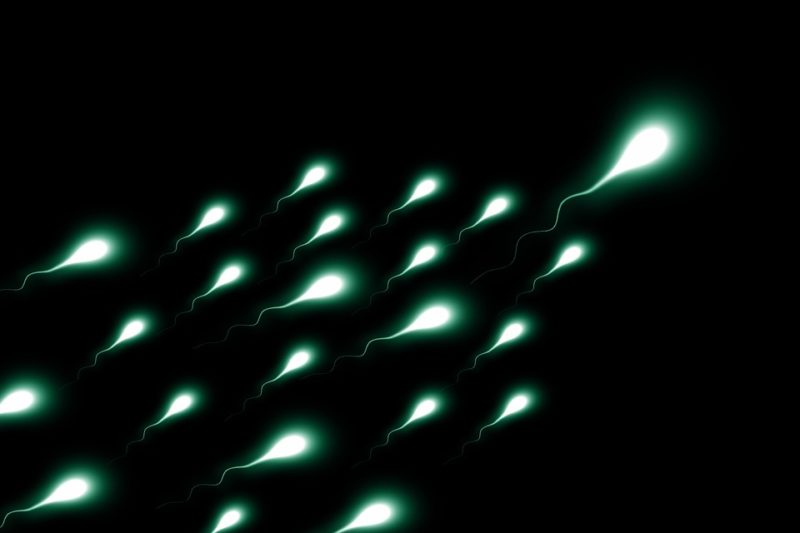Do you want to know how does sperm donation work? We’ll discuss this as you read further into this article. It’s necessary whenever a healthy sperm is not produced and not sufficient enough to conceive a baby.
You don’t want to be connected with the stigma of utilizing donor sperm to start a family because sperm donors have a bad reputation in popular culture.
When you hear the term sperm donor, are you picturing a scruffy college student giving up his sperm to a sketchy IVF clinic? No, it’s not the case. However, this is why articles like this one are essential for you to be enlightened on topics you have limited knowledge about. Let’s get into it!
Who Makes Use Of The Sperm Donation Program?
If your spouse doesn’t produce sufficient healthy sperm to conceive you, or if he prevents passing on a hereditary condition, sperm donation may be an option for you—ideal for unmarried women or are thinking about starting a family with another woman.
Sperm from a donor is utilized to fertilize an egg that has been implanted within your body. Donor insemination is the medical term for this procedure. When a woman cannot conceive, doctors inject a thin, flexible tube called an epididymis into her cervix to treat her infertility.
Your chances of getting pregnant are increased by receiving treatment around the period of ovulation. In addition, your doctor may prescribe a fertility medicine to help stimulate the creation of more eggs. Sperm donation can be used in IVF, which involves fertilizing eggs inside a laboratory. Meaning to say the eggs will be removed and fertilized in the lab using a fine needle.
Returning the egg to the womb to continue growing and developing the embryo in the hopes of giving birth to a child is the next step. That’s how does sperm donation work! Anyway, you may find it helpful to know how does egg donation work.
Who Is The Sperm Donor?
The sperm’s origin is a mystery. Some couples want to use the sperm of a close family member or friend who donates his sperm. Commonly, sperm is acquired and handled by a sperm bank that has received state approval.
It’s safe to assume that sperm donors have been carefully checked for viruses and genetic abnormalities before using them. Likewise, your spouse’s eligibility and physical similarity to you would have been thoroughly vetted by them. A single registered donor’s sperm can be used to conceive up to ten children, and sperm donors aren’t compensated in any way; they merely want to assist couples to get pregnant.
Research For Sperm Banks
Sperm donors from sperm banks can, unfortunately, be a “caveat emptor” situation. An unregulated industry can lead to inadequate donor screening and unethical business activities because certain banks have a better reputation than others.
For this reason, you should familiarize yourself with the bank’s procedures by reading all of their consent papers, legal policies and asking them regarding record-keeping practices.
Furthermore, it would help to research the types of diseases and medical histories that they are looking out for when conducting background checks on customers. There are a variety of resources to help you get started, including Facebook groups, infertility support, and consumer reviews online. Find out about infertility counseling and support.
How Much Does Sperm Donation Cost?
The cost of sperm donation is low when compared to other forms of reproductive care. This can cost anywhere between $500 and $2,000. In addition, there are additional fees such as $800 for sperm storage, registration, and shipping. You’ll be on the hook for the difference if your insurance doesn’t cover donor charges. Also, consider legal and mental health screening costs when using a family member or friend as the donor.
It would help if you did not try insemination at home. Using your donor’s sperm in-home insemination is possible in theory.
However, since home insemination invalidates any agreements meant to keep you safe in the majority of states, it can have disastrous repercussions for you. Insemination procedures should be left to the specialists, in general. These procedures have a higher success rate because they use more sophisticated methods, such as washing semen from sperm before putting it into your uterus. How about egg donation, you ask? I guess you should also read about how much for egg donation.
Legal Implications
If you use a registered donor, you will legally recognize your child and any children you have with your partner is yours. As long as the donor is discrete, you will be regarded as the legal family of the baby.
The biological parents and other information about the donor’s origins had previously been kept in the dark. Donor anonymity laws were changed, however, in 2005. As a result, every child born using donor sperm after the year 2005 will be able to ask about the name of the sperm donor when they become 18.
It’s A Wrap!
Sperm donation has both advantages and disadvantages, in my opinion. But when it comes to whether you should get sperm donation, there’s a lot to contemplate. For example, what would you do if your kid decided to locate their birth father upon reaching the age of 18?
Do you have plans to let your child know how they came to be? What impact will it have on your relationship with your spouse if the child isn’t genetically his? You can discuss those and other concerns with a counselor before committing to the procedure. And, of course, you should understand how does sperm donation work. You may also be interested to know how long is the egg donation process.

